The 12 Best Books I Read in 2016
I read a ton this year, mostly as a way to procrastinate book writing and because I was flying around so much. The total book count was somewhere in the 60-70 range if we include re-reads, and naturally, I enjoyed some of them much more than others.
If you’re looking for a good holiday gift or something to read on the beach or by a fire, here are the 12 I loved and got the most out of. Also, if you want to see everything I’m reading and my notes on it, you can always look at my lessons page.

Endurance: Shackleton’s Incredible Voyage by Alfred Lansing
“For scientific leadership give me Scott; for swift and efficient travel, Amundsen; but when you are in a hopeless situation, when there seems no way out, get down on your knees and pray for Shackleton.”
This book blew me away. It’s one of those books you read where after putting it down, you go “welp, I’ve never really struggled in my life.” It’s about Ernest Shackleton’s mission to be the first group to cross Antarctica, but early on (no spoilers), the ship gets stuck in the ice and they have to abandon it. It takes them nearly 3 years, but they make it out of Antarctica (without their original ship), and everyone survives. Insanity.
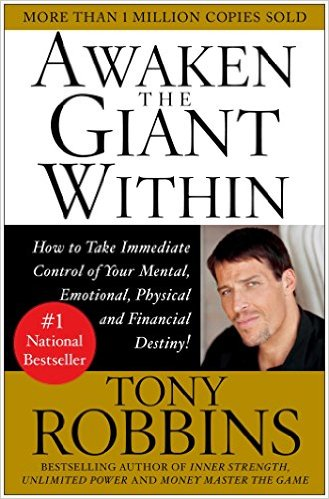
Awaken the Giant Within by Tony Robbins
“Most people fail in life simply because they major in minor things.”
I was initially turned off by this book mostly because it’s title made my secular sensibilities cringe, but I recognize now that it’s just a marketing strategy. What’s in it is the most useful book on self-directed performance-focused practical psychology I’ve ever found. If you read and implemented this book, you wouldn’t need 90%+ of the other pop-psych books published since 2000. What makes it so great is that he talks directly to you, and what you know is true, without wasting time on dubious psych research that just confirms what we’ve already known for 2,000 years.
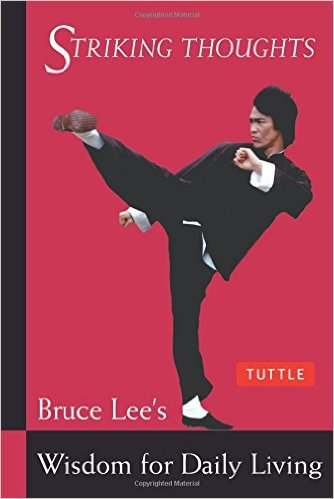
Striking Thoughts: Bruce Lee’s Wisdom for Daily Living by Bruce Lee
“Not to think, but to do. — Our grand business is not to see what lies dimly at a distance, but to do what lies clearly at hand.”
Bruce lee was much more than just a martial arts movie action star. He was a deep study of philosophy and crafted his philosophy for life around a blend of ancient philosophies, principally zen buddhism and stoicism. These “striking thoughts,” (or, aphorisms), offer wisdom on life, love, health, fitness, work, play, death, and anything else you could be looking for. Even if you’re someone who “doesn’t like philosophy” you can get caught up in it and realize something new about yourself.
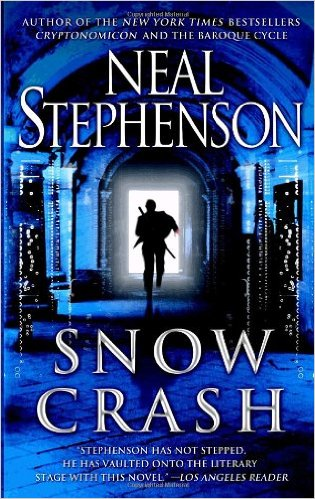
Snow Crash by Neal Stephenson
“Jokes. Urban legends. Crackpot religions. Marxism. No matter how smart we get, there is always this deep irrational part that makes us potential hosts for self-replicating information.”
As I started getting into VR development, it only made sense to read the original novel that inspired much of the modern VR lingo and expectations. It didn’t disappoint. It’s a tad dated since it was published in 2000 (a time before Facebook, YouTube, Video Chat, Smart Phones, holy shit yes that’s all true, etc.) so the aspects of it that would have made you go “whoa!” back then are now just “yeah we’ll have that in a few years,” but it’s still great.
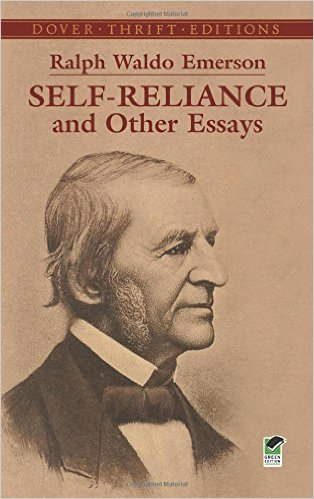
Self-Reliance by Ralph Waldo Emerson
“… you will always find those who think they know what is your duty better than you know it.”
I’m sure I must have read this in high-school, but I don’t remember getting nearly so much from it. Emerson’s essay pushes you to do things your own way, forget the status quo, and maintain your belief that it’ll all work out in the end. It’s a good pick me up when you’re considering doing things that might go against the beliefs of your peers or environment. If you like Stoicism, he draws much of his inspiration from that field of philosophy.
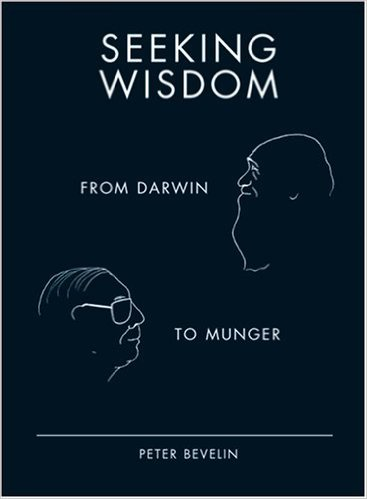
Seeking Wisdom from Darwin to Munger by Peter Bevelin
“Our basic nature is based on a hunter-gatherer style living. Biologically, we’ve spent 99% of our existence as a species in a Hunter-Gatherer state, and we have not evolved enough to adapt to not being in one yet. Many of our tendencies can be explained by this history.”
Expensive and hard to get, but oh so worth it. This is the science and story based companion to “Awaken the Giant Within.” It’s no-bullshit and jam packed with useful psychology and decision science research, which is probably why it’s not that popular. It’s DENSE. But you will learn a ton and refer back to it constantly.
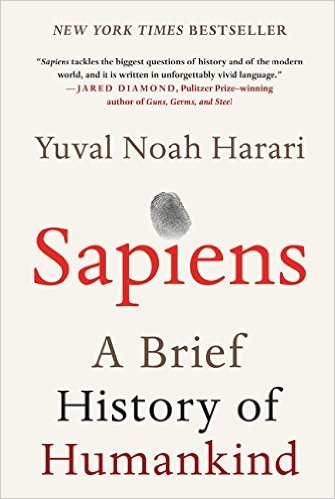
Sapiens: A Brief History of Humankind by Yuval Noah Harari
“We thought we were saving time; instead we revved up the treadmill of life to ten times its former speed and made our days more anxious and agitated.”
This book makes history fun. Harari goes through the history of humanity and observes it the way some intelligent third party would, leading to some interesting observations on why we do what we do and why we’ve turned out the way we’ve turned out. It reminds me of Bill Bryson’s “a short history of nearly everything,” but with a more human-nature than science focus.
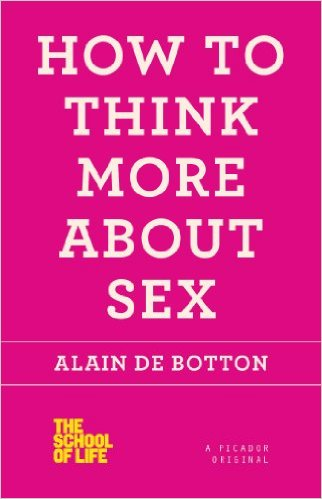
How to Think More About Sex by Alain de Botton
“The orgasm itself marks the supreme moment when our loneliness and alienation are momentarily overcome.”
“We don’t think too much about sex; we’re merely thinking about it in the wrong way.” Alain discusses our psychology around sex in this short book, and how we can get past some of the mental barriers that hold us back from full expression and exploration. His discussion of BDSM is particularly interesting, and how it can serve as a way to develop trust between couples.
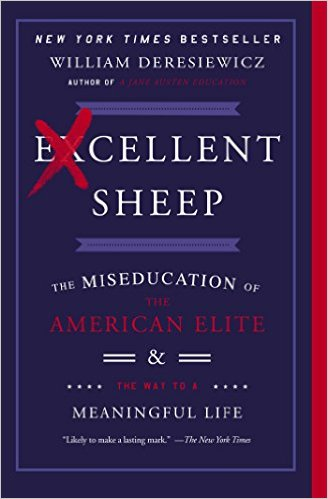
Excellent Sheep: The Miseducation of the American Elite and the Way to a Meaningful Life by William Deresiewicz
“Instead of worrying so much about building your resume, you need to start working on building your mind.”
If you’re in college or have a kid in college, you need to read this book. Deresiewicz breaks down how the competition among schools and students has led to a collective worsening of education, and how that’s caused students to become “excellent sheep” instead of independent intelligent thinkers. If you’re a student who cares deeply about grades, this is for you.
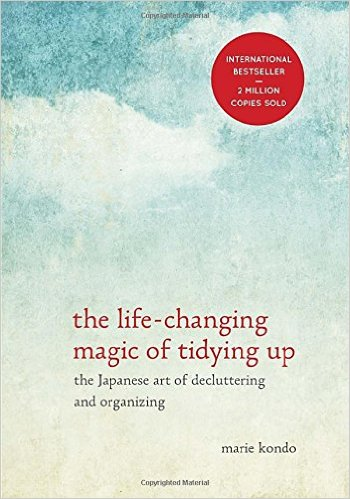
The Life-Changing Magic of Tidying Up: The Japanese Art of Decluttering and Organizing by Marie Kondo
“When we delve in to why we can’t let something go, there are two main reasons: an attachment to the past, or a fear of the future.”
This is and isn’t a book about keeping tidy. On the surface it is, but the underlying philosophy extends well beyond your messy closet. The idea of sparking joy, and picking up and questioning everything you “own” in your life is a useful practice, and can help anyone create less baggage and less weight. I’d recommend it to anyone who feels overwhelmed, whether that’s by stuff or commitments or people.
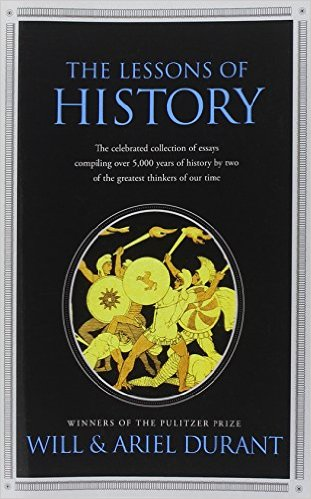
The Lessons of History by Will and Ariel Durant
“Utopias of equality are biologically doomed, and the best that the amiable philosopher can hope for is an approximate equality of legal justice and educational opportunity.”
You can read it in an afternoon, and you’ll come away with a deeper understanding of human nature as told by history. You’ll also understand the push and pull of prevailing political ideologies, why we get into situations that look ridiculous in retrospect, and why the time we live in now is so rare. Particularly interesting to me was why freedom and equality are opposites, and how you cannot have both. One must always come at the expense of the other.
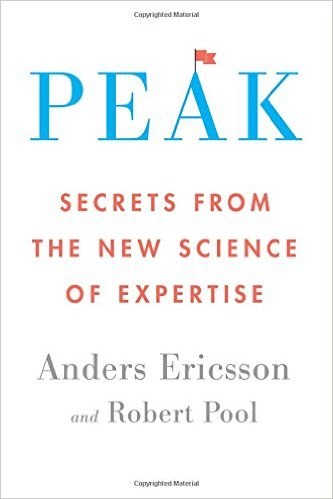
Peak: Secrets from the New Science of Expertise by Anders Ericsson
“We only learn until we feel like we’ve hit a “good enough” point. As soon as we feel like we’re good enough (subconsciously or consciously) we stop improving, even with continued repetition.”
If you want to master a skill, this is your book. There is no other. After having his research misinterpreted and misexplained by people like Malcolm Gladwell in Outliers, Anders Ericsson, the leading researcher in expertise, sat down and wrote what his research actually means about how you can become a master of anything (or not). The 10,000 hour is bunk, as is most of the popular knowledge around skill (e.g. the existence of talent). Pick this up if you want to get good at something, or more importantly, if you believe that you cannot.
There you have it! Expertise, sex, history, icebergs, virtual reality, all sorts of goodies. Enjoy whichever ones you pick up, and if you found any books you particularly loved this year, let me know on twitter.